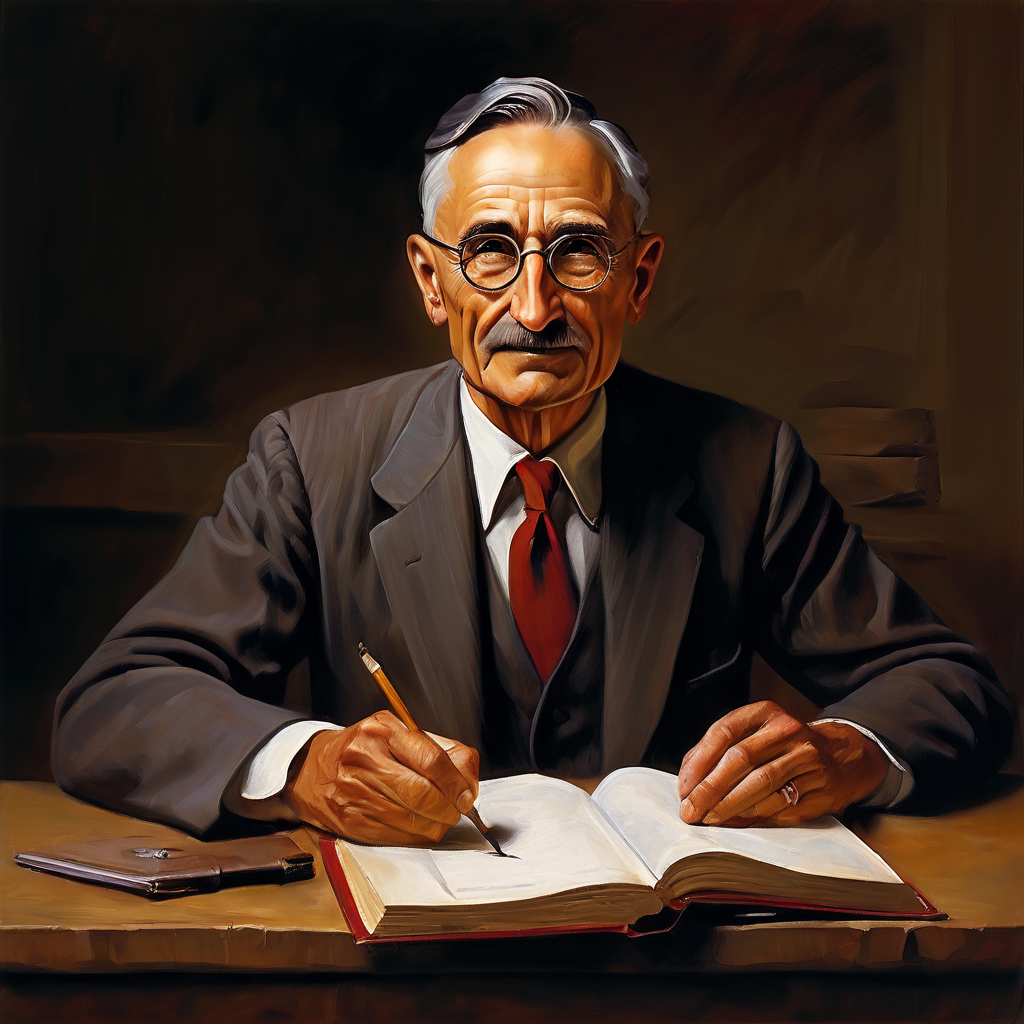Understanding Hayek's Ideas About the Economy and Society

Prices are one of the most important concepts to understand in economics. This post looks at Friedrich Hayek and his ideas. He was an important economist and thinker who had big ideas about how economies and societies work. One major source of his ideas about prices is his famous essay The Use of Knowledge in Society. If you haven't read it yet, I recommend it.
The Big Idea: Knowledge is Spread Out
Hayek's main idea was that the knowledge needed to make good economic decisions isn't all in one place or with one person. Instead, it's spread out among many people in society. Each person knows things about their own situation, what they like, and what's happening around them. This special knowledge that each person has is really important for making good choices about buying, selling, and producing things.
For example, a local store owner might know what products are popular in their neighborhood, while a farmer knows about the best ways to grow crops in their area. No single person or government agency can have all this detailed knowledge.
How Prices Help Us Communicate
So, if important knowledge is spread out among many people, how can a society coordinate everyone's actions? Hayek said that prices in a free market do this job. Prices act like a communication system, telling us important information about what things are worth and how scarce they are.
For example, if oranges become harder to find, their price usually goes up. This tells:
- Orange growers to try to produce more
- Consumers to maybe buy fewer oranges or switch to other fruits that are relatively cheaper
- Companies that use oranges to look for alternatives or raise their own prices
This system helps everyone adjust to changes without needing anyone to be in charge of the whole "orange economy" or set up an Orange Production Agency.
Why Central Planning Has Problems
Hayek used his ideas about spread-out knowledge to explain why it's hard for governments to plan entire economies. He said that because important information is spread out among many people, it's impossible for a central planner to gather all the knowledge needed to make good decisions for everyone.
He argued that when governments try to control everything in an economy, it often leads to inefficiency and less innovation. Without the signals that prices provide in a free market, planners don't have the information they need to distribute resources effectively or respond quickly to changes.
The "Spontaneous Order" of Markets
One of Hayek's most interesting ideas was about "spontaneous order." He said that the complex organization we see in market economies isn't designed by anyone. Instead, it emerges naturally from many people pursuing their own goals.
Think of it like a flock of birds flying together. No single bird is in charge, but they create a complex, organized pattern by each following simple rules. In the same way, Hayek believed that people following their own interests in a market, guided by prices, create a complex and efficient economic system without anyone planning it.
The Nature of Economic Knowledge
Hayek thought a lot about the kind of knowledge that's important in economics. He emphasized that much of this knowledge is "tacit" - things people know but might have trouble explaining. This includes:
- A business owner's intuition about what products might sell well
- A worker's understanding of the best way to do their job
- A consumer's preferences that they might not even realize they have
This tacit knowledge is another reason why central planning is difficult and why it's important to understand that prices and their relative movements are critical pieces of information that enable coordination across time and space.
Adapting to Change
Hayek believed that one of the strengths of a market system is its ability to quickly adapt to changes. New information - whether about available resources, new technologies, or changing consumer preferences - quickly shows up in prices. This allows the whole economy to adjust without needing anyone to coordinate it centrally.
For example, if a new technology makes producing a good easier, its price will likely fall. This tells consumers they can buy more of it and tells other producers they might need to improve their own products to compete.
Why Hayek's Ideas Still Matter
Friedrich Hayek's insights about knowledge in society and what this means for how we organize our economies are still very relevant today. Here's why:
- In a time when we have access to big data and complex economic models, Hayek reminds us not to be overconfident in our ability to control complex systems like economies.
- As we continue to debate about what role government should play in the economy, Hayek's ideas offer important perspectives on the benefits of letting markets work and the challenges of central planning.
- Hayek's ideas about spread-out knowledge and spontaneous order help us understand other complex systems beyond just economies, like ecosystems or even social media networks.
- In a world that's always changing, Hayek's emphasis on adaptability and the importance of individual knowledge remains relevant.
While not everyone agrees with all of Hayek's ideas, they continue to shape how we understand the relationship between knowledge, markets, and social order, providing lasting insights into how modern economies and societies work.
Humility about what can and can't be controlled centrally is more important than ever in an era where LLMs and autonomous agents are predicted by some to be able to "properly do central planning for the first time".

